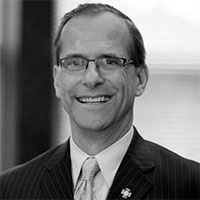Reflections
Lutheran theology is filled with paradoxes. Sinner/saint. Law/Gospel. Now/Not yet. Both/and. The list goes on. This edition of Issues seeks to stir thoughtful conversation about the role of the Christian in public schools. The authors frame the conversation well and, as I reflect on their insights, I travel back in time to my days in a small, rural community in northwest Iowa and the many experiences of a K-12 public school education. I sense my public school education was of the “three-legged stool” variety (religion, morality, and knowledge—see our feature article, “Christians and Public Schools: A Conversation with Finn Laursen”), but it was still a public education. I realize well that the same education today is a much different experience in a multitude of ways.
That said, I am thankful for my public school experiences! During my K–12 school experience I knew many of my teachers were Christians. They expressed their faith and supported my faith development in appropriate ways. In fact, a most treasured high school graduation gift was a pectoral cross from my English teacher, a devout Methodist. She knew I wanted to be a pastor and did all she could to encourage me to prepare for that vocation. Mavis was a tremendous blessing in my life. Another reason I am thankful for my K–12 public school experience was because of the excellent Christian education I received from my congregation. Saturday morning confirmation classes for three years, two weeks of vacation Bible school each summer and weekly Sunday school lessons were integrated and coordinated. We learned well the six chief parts of Luther’s Small Catechism, memorized numerous Bible passages and hymn verses, explored the Lutheran way of worship, the journeys of St. Paul and the story of Martin Luther.
While not obvious to me at the time, I wonder: did my home congregation work harder with its Christian education program because all of the congregation’s children attended public school? Did my home congregation, which long before my time had a one-room Lutheran school, simply value Christian education and desire to tell it to the “next generation”?
(Psalm 78:4)
While the “three-legged stool” of public education is, if it hasn’t disappeared already, ever more on the wane in our postmodern society, the role for the Christian who is an educator, administrator, or school board member in the public education sector has never been more important. As several of our authors note, there are tremendous opportunities to live the faith in light-shining, earth-salting ways. What opportunities for witness and ministry! At the same time, there is a tremendous need for the local congregations to be more intentional than ever in their Christian education ministry to children, youth and adults—including Lutheran schools. As this edition of Issues emphasizes, for the individual Christian and the collective Christian community “both/and” must be our answer. The church must work harder to catechize young and old alike who have access only to public education! To that end a Lutheran Christian university like Concordia must work harder to equip and shape all of its students as it proclaims and confesses the glorious and abundant ways in which God’s kingdom constantly intersects the public domains where we live, work and serve.

